Erica Verrillo's Blog, page 79
August 13, 2015
Should You Hire a Professional Book Cover Designer?
 You've finished editing your novel and decided to self-publish. Now you are faced with a choice. Should you spend the money on a professional book cover designer or design a cover yourself?
You've finished editing your novel and decided to self-publish. Now you are faced with a choice. Should you spend the money on a professional book cover designer or design a cover yourself?Unless you are a graphic designer, hire someone. People do indeed judge a book by its cover. And just as an attractive cover draws the eye, a dull cover can cause readers to move on to a more appealing image. Your best chance of making sure people stop to look at your book cover is to make sure it is designed by a professional.
Judging a book by its cover
The problem that faces self-publishers is how to evaluate an effective cover. "Good" and "bad" reside in the eye of the beholder. Depending on cultural tastes, what is considered "good" can vary widely. Standards also change over time.
Consider Baen Press, a publisher of speculative fiction famous for its ridiculous book covers. (Some of the most horrendous covers can be found on Good Show Sir, along with hilarious comments.) Those covers were not considered awful 30 years ago. (I know because I bought many of them.) Times change, and tastes change along with them.
 Shumate thinks this is a bad cover, and so do I In an article on Huffington Post, Nathan Shumate presents what he believes to be the 10 worst self-published book covers ever. According to Shumate, a bad book cover looks "amateurish." In other words, it looks as if the author designed it, which reflects what critics think of writers' artistic capacity (as well as industry norms in which DIY is considered déclassé).
Shumate thinks this is a bad cover, and so do I In an article on Huffington Post, Nathan Shumate presents what he believes to be the 10 worst self-published book covers ever. According to Shumate, a bad book cover looks "amateurish." In other words, it looks as if the author designed it, which reflects what critics think of writers' artistic capacity (as well as industry norms in which DIY is considered déclassé).But are professionally-designed book covers any better? Frankly, I can't tell the difference between what the NYT considers the best book covers, and what Huffington Post says are the worst. Books lists "20 Best Book Covers" that are only slightly less trendy. What is currently popular does not always stand the test of time, or of good taste, so I would caution you against anything that smacks of trendiness.
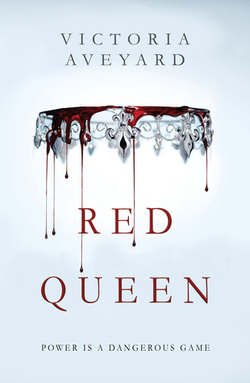 Ultimately, a bad cover is one that makes your eye move on. If you don't want to gaze at the cover, chances are you won't want to read the book.
Ultimately, a bad cover is one that makes your eye move on. If you don't want to gaze at the cover, chances are you won't want to read the book.What are the qualities of a good cover?
The basic components of a good cover are 1) being able to easily read the title and author and all subheadings, 2) an image that doesn't interfere with the written information, 3) a thumbnail that stands out, and 4) the ineffable quality of memorability. Just like a piece of art, a book cover should be memorable.
My idea of a memorable cover is Red Queen by Victoria Aveyard. It is simple, evocative, and aesthetically pleasing.
The theme, expressed beautifully by the image, is spelled out below - for those who need words. And you can easily read both title and author's name. When I close my eyes, I can still see the image and the title. (Those not only stuck with me, they persuaded me to order the book.)
For more memorable book covers - and an analysis of why they do (or don't) work - see Joel Friedlander's Ebook Cover Design Awards.
The bottom line for good book covers is that they make you want to read what's between them.
How do you find a book cover designer?
There are many excellent book cover designers, but locating one who is perfect for your project can be a challenge. To narrow the field, go to Amazon and look at covers for books in your genre. When you come to one that is enticing (would you want to know more about this book based on the cover?) find out who the cover designer is. (You can type "cover design" and the title of the book into a Google search. Alternatively, you can type "cover design" into the "Look Inside" feature in case there is an acknowledgement.) If those methods fail, you can always contact the author (especially if the book is self-published; in traditional publishing authors have no control over cover art). Even if the artists you find through this method do not do freelance work, you now know what you like. When you approach cover designers, you can show them examples of the styles that appeal to you.
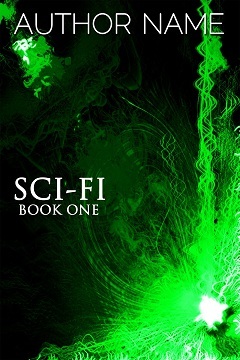 An example of a bad pre-made book cover Another strategy is to conduct a Google search for "book cover designers." This will yield you 16 million hits and will make you want to run screaming from your computer screen. But it is worth it to look at some of these sites. You won't necessarily find the best designers with this method, but you will get a feel for different types of design options - of which there are exactly two: pre-made designs and custom designs.
An example of a bad pre-made book cover Another strategy is to conduct a Google search for "book cover designers." This will yield you 16 million hits and will make you want to run screaming from your computer screen. But it is worth it to look at some of these sites. You won't necessarily find the best designers with this method, but you will get a feel for different types of design options - of which there are exactly two: pre-made designs and custom designs.Pre-made covers
Pre-made book covers are usually cobbled together using stock images. The way it works is you choose an image you like, the designer adds your name and book title, you buy it, and the image is then taken off the market, never to be used again.
Pre-made covers tend to be quite inexpensive. Cheap Book Cover Depot offers pre-made covers for as little as $5. Fiverr is another service that starts at $5. But while cheap pre-made covers are passable, they have a bland, generic quality that does not make them memorable. If you pay a bit more, you can sometimes find a pre-made cover that looks as if it were commissioned. (Big Sky Words has a list of 10 good pre-made cover designers.)
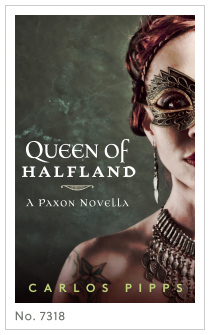 A good pre-made cover from Go On Write Of the pre-made cover designers, there is one who stands out. Go On Write offers pre-made covers starting at $45 that are more than worth the price. The designer, James, has real flair and a solid sense of design. Some of his pre-made covers rival any of the commissioned work you will find. (James also does commissioned work.) Take a moment to browse through the categories on his site. (And compare them to the image of Sci-Fi Book One. See the difference?) If you have to buy a pre-made cover, James is your man. (For more background on James, you can read a rather wild interview with him on Mumbleweeds.)
A good pre-made cover from Go On Write Of the pre-made cover designers, there is one who stands out. Go On Write offers pre-made covers starting at $45 that are more than worth the price. The designer, James, has real flair and a solid sense of design. Some of his pre-made covers rival any of the commissioned work you will find. (James also does commissioned work.) Take a moment to browse through the categories on his site. (And compare them to the image of Sci-Fi Book One. See the difference?) If you have to buy a pre-made cover, James is your man. (For more background on James, you can read a rather wild interview with him on Mumbleweeds.)Individually commissioned covers
Covers that are individually designed cost more (in the hundreds) but will give you the security of knowing your book cover is the equal to anything designed by an artist working with a major publisher. There are two methods of obtaining a commissioned book cover: 1) competitive services in which you place an ad to be viewed by hundreds of designers, and 2) contacting individual designers directly through their websites.
99 Designs is a graphic design service that allows you to post your project in a pricing category ($299-$1199). Depending on your plan, a set number of designers - between 30 and 60 - submit their book cover designs. You have a week to give feedback to designers. After that you choose which design you want. In essence, 99 Designs is a contest.
There are advantages and disadvantages to this system. The advantage is that you get to compare a number of different styles and interpretations, which may broaden your horizons. The disadvantage is that you are under the gun in terms of time. Making a decision quickly, especially if you think the design needs tweaking, may not be in your best interests.
My personal preference is to work directly with a designer. Working directly with a designer allows you to hone your book cover until it is exactly what you want - and the final product will be unique. You will pay more for the design than pre-made covers, but the promise of complete satisfaction may be worth it. I've listed a couple of good designers below. Look at their portfolios and terms to get an idea of what a designer should offer.
____________________
Reputable Designers
 Nu-Image Design
Nu-Image DesignDan Yeager is very professional and reasonably priced. You have to pay half up front, but he won't quit until you are completely satisfied with the final product. Turn-around time is very fast. The cover for my ebook cost less than $250. He also does full print set-ups.
To the left is the book cover Dan Yeager designed for me. It is elegant, memorable, and the text is easy to read.
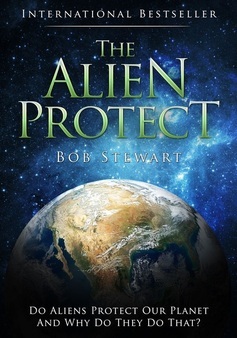 Ness Graphica
Ness GraphicaAlexander von Ness has almost 20 years of professional experience in graphic design and over a decade as Art Director in a branding agency. He is a multiple winner and finalist of international graphic design contests in the category of book cover design. I have not worked with him, but his covers are impressive. Like Dan Yeager, he will do limitless revisions until you are satisfied. Prices are generally in the $400 range.
Von Ness works quickly. He promises a first draft within three days.
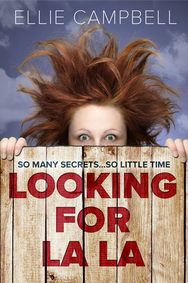 Design for Writers
Design for WritersAndrew Brown is currently redesigning his website, but you can see examples of his work on his Facebook page.
More:
Mark's List
Smashwords provides a list of affordable ebook cover designers - both pre-made and commissioned work.
DIY
While I don't normally recommend making your own cover, if you have an eye for design there are plenty of resources at your disposal.
Making Your Own Book Cover? Best Free Programs for Graphic Design
13 Sites Where You Can Get Fabulous Free Photos
Once you have finished your cover, however, don't immediately slap it on your book. Get a second opinion from a professional. Bioblosson Creative offers cover critiques, as well as cover makeovers at very reasonable rates ($30-$50).
Published on August 13, 2015 03:29
August 11, 2015
Graphic Novel Market Rises to 10-Year High in 2014, Print Holds Strong
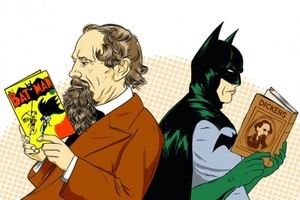 Building on its previous year's high of $870 million, 2014 saw an increase in graphic novel sales to $935 million, divided equally among digital and print.
Building on its previous year's high of $870 million, 2014 saw an increase in graphic novel sales to $935 million, divided equally among digital and print.These figures are encouraging, because graphic novels may be the last great print holdout. (All we really need is one.)
Why am I such a fan of print?
It is because there is something irreplaceable about the smell, feel, and look of a book on paper (or papyrus). Holding one in your hands, cuddling up with it, or flinging it across the room when the author fails to deliver a satisfactory ending, are all things that enhance reading, and make it an experience that cannot be replicated on a screen.
Also see:
Oni Press Opens Door to Graphic Novel Submissions - No Agent Required
7 Graphic Novel Publishers Accepting Manuscripts Directly From Writers
Graphic Novel Sales Hit $870 Million in 2013
_____________________________
From Publishers Weekly, July 1, 2015
By Calvin Reed
Led by increases in the book trade, combined sales of graphic novels and periodical comics in North America reached $935 million in 2014, a 7% increase over 2013, according to a joint report by comics trade news sites ICv2.com and Comichron.
Sales of graphic novels in the book trade rose 16% to $285 million, while periodical comics sales in the comics shop market grew 4% from $340 million to $355 million.
Digital download-to-own sales were estimated to be about $100 million in 2014, an 11% increase over 2013. Though the ICv2/Comichron report noted the rate of digital growth declined from the 29% (on sales of $90 million) reported for 2013. Once again the report noted that “digital appears to be complementing, rather than cannibalizing, print."
Comichron’s John Jackson Miller called 2014 the “biggest year for print since 1995, adjusting for inflation.” Indeed, the report noted growth across all formats, print, periodical and digital. Print (both periodical and book) sales grew $55 million to $835 million in 2014, up 7% from 2013.

Published on August 11, 2015 08:14
August 6, 2015
Pitch Wars 2015 is coming! Are you ready?
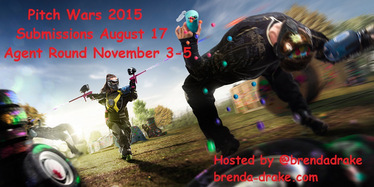 Brenda Drake hosts the popular Tweetfest, #PitchMAS. During #PitchMAS, writers tweet their pitches along with their category. Agents following the feed then contact the writers who grab their attention.
Brenda Drake hosts the popular Tweetfest, #PitchMAS. During #PitchMAS, writers tweet their pitches along with their category. Agents following the feed then contact the writers who grab their attention.Pitch Wars is a preliminary event in which writers apply for critiques from mentors. Published and/or agented authors, editors, or industry interns choose one writer each, read their entire manuscript, and offer suggestions to prepare it for agents.
This is an excellent opportunity to hone your work to perfection.
____________________
Pitch Wars 2015 is coming! Are you ready?
Posted By Brenda Drake on Jul 19, 2015
We’re so excited for Pitch Wars 2015! For those unfamiliar with Pitch Wars, it’s a contest where published/agented authors, editors, or interns choose one writer each, read their entire manuscript, and offer critiques on how to make the manuscript shine. The mentor also critiques his/her writer’s pitch to get it ready for the agent round. Those entering Pitch Wars submit applications (query plus first chapter of manuscript) to our mentors. The mentors then read all their applications and choose the writer they want to mentor for two months to get them ready for the agent round. Writers can pick up to four mentors to submit to. How will you decide what mentors to submit to?
Come back August 3 for our Mentor Wishlist Blog Hop. The mentors’ bios and wishlists will be posted to their blogs and linked from a post on my blog, and you can hop around and find the right matches for you. And visit the Twitter hashtag #PitchWars to get to know the mentors personally (virtually). The hop will go on until 8/17, which is submission day!!
This year, we won’t have alternates. Instead, I’ve added more mentors and there will be 92 mentee spots up for grabs. Applications will be sent through an easy submission form. The form will go live just after midnight (EDT – New York time) August 17 and remain open for 24 hours. What will you need to enter in the form? Your top four (max – you don’t have to pick 4, but you are limited to 4) mentors, your email address, title of the manuscript, category and genre, your query letter (sorry no personalized queries this year), and the first chapter of your completed manuscript (Word .doc or .docx format). The sample chapter should be manuscript formatted pages (12pt, double-spaced). All of this will be fill-in-the-blank on the form.
Submission Guidelines:
Only Middle Grade, Young Adult, New Adult, or Adult manuscripts will be accepted.This is open to completed, full-length, fiction manuscripts only.You may only enter one manuscript.Only the genres requested by each mentor will be considered for the contest.Writers may only apply to 4 mentors max.Mentors will only consider the categories they’ve signed up for. (The mentors’ categories – MG, YA, NA, or Adult – are set.)Writers cannot apply for a mentor that is not in their category or the application will be deleted.No nonfiction, picture books, chapter books, or previously published works. (If you’re an unagented author and have self-published before, you may enter the contest with a never-before-published manuscript.)WARNING: Just like an agent, mentors may request more pages or a synopsis of your manuscript to help them make their final decision, so get them ready! Mentors may also pass your application on to another mentor they feel would be a better match. If a mentor you didn’t apply to picks you invites you to be his/her mentee, you have the right to pass on said invite.
Please note: Being kind to one another is mandatory in this contest. Should I find someone isn’t being kind and respecting others, I will remove you from the contest. Also, if you are difficult with your mentor or if you aren’t working well as a team or if you don’t take any of your mentor’s advice, your mentor will have the option to opt out of being your mentor. Remember your mentor has other obligations like deadlines, book promotions, and family life, please be mindful of their time. They are only required to read your manuscript once and give an edit letter. They aren’t required to do line edits. Our mentors are very generous with their time, so please be patient. We’ve had close to forty successes from last year’s Pitch Wars and it’s because of our mentors and the care they take with their mentees that it’s been such a great success.
If you were a mentee in Pitch Wars 2014 you may not enter Pitch Wars 2015. If you were a mentee in 2012-2013, you may enter with a new manuscript. If you were an alternate in any of the previous Pitch Wars, you may enter the same or a new manuscript for Pitch Wars 2015.
!!!! If you make it into Pitch Wars, you may not enter any contests or query during the mentoring period and until after the agent round, which is November 3-5. If you are currently in a contest (such as Pitch to Publish running at the same time as Pitch Wars), you may not enter Pitch Wars. When in doubt, ask.
For those who do not make it into Pitch Wars (and those who want to join in), we’ll hold a Twitter Pitch Party on #PitMad September 10 from 8AM to 8PM EST. If you make it into Pitch Wars, you may not pitch in #PitMad.
There will be an “Ask the Mentors” event on the Twitter hashtag, #AskMentor and on #PitchWars, on August 10 from 12:01AM to 11:59PM EDT. Stop by and ask mentors questions as you see them join the hashtag.
Some our Pitch Wars mentors will be chatting live with the Whiskey, Wine, & Writing gang at 8PM EDT. Make sure to watch and get to know the mentors. Here’s the schedule:
August 4 and 11: Middle Grade mentorsAugust 5 and 12: Young Adult mentorsAugust 6: New Adult mentors (Mentors who are mentoring either YA/NA or NA/A)August 7: Adult mentorsFor my contest schedule go here.
We look forward to seeing you August 3!
Published on August 06, 2015 05:33
August 4, 2015
Authors Guild Pushes for Higher E-Book Royalties
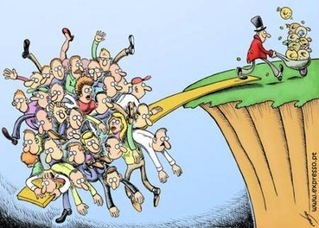 Last week, I received an email from the Authors Guild which struck a chord. The subject was royalties for electronic books, which, as AG correctly points out, have been dropping even as the market for ebooks is booming.
Last week, I received an email from the Authors Guild which struck a chord. The subject was royalties for electronic books, which, as AG correctly points out, have been dropping even as the market for ebooks is booming. When I got my first publishing contract in 1997, the ebook split was 50 - 50. By 2006, when I signed my contract with Random House, the royalty was 25% of retail, and zero on deep discounts. I have no idea how much I lost through that arrangement.
What AG has done is to calculate what authors have lost. While publishers are not gaining as much as they did in the first heady days of ebook expansion (before Amazon forced them to lower their prices), they are still gaining - at the expense of authors. According to AG, authors are losing up to half of their ebook royalties.
Read it and weep... (or, alternatively, read it and self-publish)
____________________
Authors Guild, July 9, 2015
We announced our Fair Contract Initiative earlier this summer. Now our first detailed analysis tackles today’s inadequate e-book royalties. At the heart of our concern with the unfair industry-standard e-book royalty rate is its failure to treat authors as full partners in the publishing enterprise. This will be a resounding theme in our initiative; it’s what’s wrong with many of the one-sided “standard” clauses we’ll be examining in future installments.
Traditionally, the author-publisher partnership was an equal one. Authors earned around 50% of their books’ profits. That equal split is reflected in the traditional hardcover royalty of 15% of list (cover price, that is, not the much lower wholesale price), and in the 50-50 split of publishers’ earnings from selling paperback, book club, or reprint rights. Authors generally received an even larger share than the publisher for non-print rights (such as stage and screen rights) and foreign rights.
But today’s standard contracts give authors just 25% of the publisher’s “net receipts” (more or less what the publisher collects from a book sale) for e-book royalties. That doesn’t look like a partnership to us.
We maintain that a 50-50 split in e-book profits is fair because the traditional author-publisher relationship is essentially a joint venture. The author writes the book, and by any fair measure the author’s efforts represent most of the labor invested and most of the resulting value. The publisher, like a venture capitalist, invests in the author’s work by paying an advance so the author can make ends meet while the book gets finished. Generally, the publisher also provides editing, marketing, packaging, and distribution services. In return for fronting the financial risk and providing these services, the publisher gets to share in the book’s profits. Not a bad deal. This worked well enough throughout much of the twentieth century: publishers prospered and authors had a decent shot at earning a living.
How the e-book rate evolved
From the mid-1990s, when e-book provisions regularly began appearing in contracts, until around 2004, e-royalties varied wildly. Many of the e-rates at major publishing houses were shockingly low—less than 10% of net receipts—and some were at 50%. Some standard contracts left them open to negotiation. As the years passed, and especially between 2000 and 2004, many publishers paid authors 50% of their net receipts from e-book sales, in keeping with the idea that authors and publishers were equal partners in the book business.
In 2004, we saw a hint of things to come. Random House, which had previously paid 50% of its revenues for e-book sales, anticipated the coming boom in e-book sales and cut its e-rates significantly. Other publishers followed, and gradually e-royalties began to coalesce around 25%. By 2010 it was clear that publishers had successfully tipped the scales on the longstanding partnership between author and publisher to achieve a 75-25 balance in their favor.
The lowball e-royalty was inequitable, but initially it didn’t have much effect on authors’ bottom lines. As late as 2009, e-books accounted for a paltry 3–5% of book sales. Authors and agents ought to have pushed back, but with e-book sales so low it didn’t make much sense to risk the chance of any individual book deal falling apart over e-royalties. We called the 25% rate a “low-water mark.” We said, “Once the digital market gets large enough, authors with strong sales records won’t put up with this: they’ll go where they’ll once again be paid as full partners in the exploitation of their creative work.”
E-books now represent 25–30% of all adult trade book sales, but for the vast majority of authors the rate remains unchanged. If anything, publishers have dug in their heels. Why? There’s a contractual roadblock, for one: major book publishers have agreed to include “most favored nation” clauses in thousands of existing contracts. These clauses require automatic adjustment or renegotiation of e-book royalties if the publisher changes its standard royalty rate, giving publishers a strong incentive to maintain the status quo. And the increasing consolidation of the book industry has drastically reduced competition among publishers, allowing them more than ever to hand authors “take it or leave it” deals in the expectation that the author won’t find a better offer.
The elephant in the room
And then there’s the elephant in the room: Amazon, which has used its e-book dominance to demand steep discounts from publishers and drive down the price of frontlist e-books, even selling them at a loss. As a result, there’s simply not as much e-book revenue to split as there was in 2011when we reported on the e-book royalty math. At that time, publishers made a killing on frontlist e-book sales as compared to frontlist hardcover sales—at the author’s expense—because, as compared to today, the price of e-books was relatively high.
When we analyzed e-royalties for three books in the 2011 post, “E-Book Royalty Math: The House Always Wins,” we found that every time an e-book was sold in place of a hardcover, the author’s take decreased substantially, while the publisher’s take increased.
Since 2011, we have found that publishers’ e-gains have diminished. But the author’s share has fallen even farther. Amazon has squeezed the publishers, to be sure. The publishers have helped recoup their losses by passing them on to their authors.
These were our calculations for several books in 2011. The trend was obvious. Compared with hardcovers, each e-book sold brought big gains to the publisher and sizable losses to the author when the author’s royalties are compared to the publisher’s gross profit (income per copy minus expenses per copy), calculated using industry-standard contract terms:
Author’s Royalty vs. Publisher’s Profit, 2011
The Help, by Kathryn Stockett
Author’s Standard Royalty: $3.75 hardcover; $2.28 e-book.
Author’s E-Loss = -39%
Publisher’s Margin: $4.75 hardcover; $6.32 e-book.
Publisher’s E-Gain = +33%
Hell’s Corner, by David Baldacci
Author’s Standard Royalty: $4.20 hardcover; $2.63 e-book.
Author’s E-Loss = -37%
Publisher’s Margin: $5.80 hardcover; $7.37 e-book.
Publisher’s E-Gain = +27%
Unbroken, by Laura Hillenbrand
Author’s Standard Royalty: $4.05 hardcover; $3.38 e-book.
Author’s E-Loss = -17%
Publisher’s Margin: $5.45 hardcover; $9.62 e-book.
Publisher’s E-Gain = +77%
What’s happening now? We ran the numbers again using the following recent bestsellers. Because of lower e-book prices, the publishers don’t do as well as they used to, though they still come out ahead when consumers choose e-books over hardcovers. But authors fare worse than ever:
Author’s Royalty vs. Publisher’s Profit, 2015
All the Light We Cannot See, by Anthony Doer
Author’s Standard Royalty: $4.04 hardcover; $2.09 e-book.
Author’s E-Loss= -48%
Publisher’s Margin: $5.44 hardcover; $5.80 e-book.
Publisher’s E-Gain: +7%
Being Mortal, by Atul Gawande
Author’s Standard Royalty: $3.90 hardcover; $1.92 e-book.
Author’s E-Loss= -51%
Publisher’s Margin: $5.10 hardcover; $5.27 e-book.
Publisher’s E-Gain: +3.5%
A Spool of Blue Thread, by Anne Tyler
Author’s Standard Royalty: $3.89; $1.92 e-book.
Author’s E-Loss: -51%
Publisher’s Margin: $5.09 hardcover; $5.27 e-book.
Publisher’s E-Gain: +3.5%[1]
Exceptions to the rule
It’s time for a change. If the publishers won’t correct this imbalance on their own, it will take a critical mass of authors and agents willing to fight for a fair 50% e-book royalty. We hope that established authors and, particularly, bestselling authors will start to push back and stand up to publishers on the royalty rate—on behalf of all authors, as well as themselves.
There have been cracks in some publishers’ façades. Some bestselling authors have managed to obtain a 50% e-book split, though they’re asked to sign non-disclosure agreements to keep these terms secret. We’ve also heard of authors with strong sales histories negotiating 50-50 royalty splits in exchange for foregoing an advance or getting a lower advance; or where the 50% rate kicks in only after a certain threshold level of sales. For instance, a major romance publishing house has offered 50% royalties, but only after the first 10,000 electronic copies—a high bar to clear in the current digital climate. But overall, publishers’ apparent inflexibility on their standard e-book royalty demonstrates their unwillingness to change it.
We know and respect the fact that publishers—especially in this era of media consolidation—need to meet their bottom lines. But if professional authors are going to continue to produce the sort of work publishing houses are willing to stake their reputations on, those authors need a fair share of the profits from their art and labor. In a time when electronic books provide an increasing share of revenues at significantly lower production and distribution costs, publishers’ e-book royalty practices need to change.
[1] In calculating these numbers and percentages for hardcover editions, we made the following assumptions: (1) the publisher sells at an average 50% discount to the wholesaler or retailer, (2) the royalty rate is 15% of list price (as it is for most hardcover books, after 10,000 units are sold), (3) the average marginal cost to manufacture the book and get it to the store is $3, and (4) the return rate is 25% (a handy number—if one of four books produced is returned, then the $3 marginal cost of producing the book is spread over three other books, giving us a return cost of $1 per book). We also rounded up retail list price a few pennies to give us easy figures to work with.
Likewise, in calculating these numbers and percentages for the 2015 set of e-books, we are assuming that under the agency model—which is reportedly the new standard in the Big Five’s agreements with Amazon—the online bookseller pays 70% of the retail list price of the e-book to the publisher. The bookseller, acting as the publisher’s agent, sells the e-book at the price established by the publisher. The unit costs to the publisher are simply the author’s royalty and the encryption and transmission fees, for which we deduct a generous 50 cents per unit.
The Authors Guild | 31 E 32nd St | Fl 7 | New York, NY 10016 | United States
Published on August 04, 2015 04:35
July 30, 2015
2 New Agents Seeking Writers: Science Fiction, Fantasy, Nonfiction, Thrillers and more
Here are two new literary agents looking for clients. DongWon Song (Howard Morhaim Literary) is seeking science fiction and fantasy – especially epic fantasy or high fantasy. He is also interested in books about food, science, and pop culture. Laura Mamelok (Susanna Lea Associates) is looking for literary fiction, high-end commercial fiction, women’s fiction, literary crime/thrillers, and young adult fiction with crossover appeal. In nonfiction, she is looking for narrative nonfiction, current affairs/journalism, memoir, and humor. 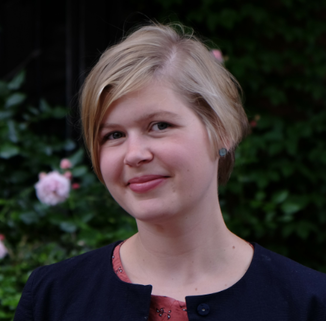 Laura Mamelok of Susanna Lea Associates
Laura Mamelok of Susanna Lea Associates
About Laura: Laura Mamelok is a literary agent at Susanna Lea Associates, where she also sells foreign rights. SLA, which has offices in New York, London, and Paris, represents a range of fiction and nonfiction, both commercial and literary. Laura is French-American and has lived in both Paris and New York. She obtained her BA in comparative literature at Barnard College and her MA in comparative literature and film at Columbia University and the University of Paris 7. Prior to joining SLA in 2009, she worked as a literary scout for Maria B. Campbell Associates. She lives in Brooklyn.
What she is seeking: Laura is primarily interested in literary fiction, high-end commercial fiction, women’s fiction, literary crime/thrillers, and young adult fiction with crossover appeal. On the nonfiction side, she is looking for narrative nonfiction, current affairs/journalism, memoir, and humor. She’s drawn to international stories and settings, in both fiction and nonfiction. Above all, she is on the lookout for fresh voices, strong storytelling, and original ideas.
Submission guidelines: Queries by email only to lmamelok [at] susannalea.com. Please send a concise query letter, including email address, phone number, and any relevant information (previous publications, etc.), a brief synopsis, and the first three chapters and/or proposal. Please include the word “Query” in the subject of your email. She considers all queries received, but will respond only if interested.
____________________
 DongWon Song of Howard Morhaim Literary
DongWon Song of Howard Morhaim Literary
About DongWon: DongWon Song is a literary agent at Howard Morhaim Literary. He was formerly an editor at Orbit, an imprint of Hachette Book Group. There, he launched multiple New York Times bestselling series, including FEED by Mira Grant and LEVIATHAN WAKES by James S.A. Corey. He was the first hire at a publishing startup, Zola Books, and while there oversaw content and eventually became the head of product for the ecommerce and ebook apps. He is a graduate of Duke University with a BA in English and Economics.
What he is seeking: Science fiction and fantasy – especially epic fantasy or high fantasy for both adults and teens. He is also interested in nonfiction, especially food writing, science, and pop culture.
Submission guidelines: E-query along with three sample chapters (for fiction) or full proposal (for nonfiction) to dongwon [at] morhaimliterary.com. Average response time is 6 to 8 weeks.
 Laura Mamelok of Susanna Lea Associates
Laura Mamelok of Susanna Lea AssociatesAbout Laura: Laura Mamelok is a literary agent at Susanna Lea Associates, where she also sells foreign rights. SLA, which has offices in New York, London, and Paris, represents a range of fiction and nonfiction, both commercial and literary. Laura is French-American and has lived in both Paris and New York. She obtained her BA in comparative literature at Barnard College and her MA in comparative literature and film at Columbia University and the University of Paris 7. Prior to joining SLA in 2009, she worked as a literary scout for Maria B. Campbell Associates. She lives in Brooklyn.
What she is seeking: Laura is primarily interested in literary fiction, high-end commercial fiction, women’s fiction, literary crime/thrillers, and young adult fiction with crossover appeal. On the nonfiction side, she is looking for narrative nonfiction, current affairs/journalism, memoir, and humor. She’s drawn to international stories and settings, in both fiction and nonfiction. Above all, she is on the lookout for fresh voices, strong storytelling, and original ideas.
Submission guidelines: Queries by email only to lmamelok [at] susannalea.com. Please send a concise query letter, including email address, phone number, and any relevant information (previous publications, etc.), a brief synopsis, and the first three chapters and/or proposal. Please include the word “Query” in the subject of your email. She considers all queries received, but will respond only if interested.
____________________
 DongWon Song of Howard Morhaim Literary
DongWon Song of Howard Morhaim LiteraryAbout DongWon: DongWon Song is a literary agent at Howard Morhaim Literary. He was formerly an editor at Orbit, an imprint of Hachette Book Group. There, he launched multiple New York Times bestselling series, including FEED by Mira Grant and LEVIATHAN WAKES by James S.A. Corey. He was the first hire at a publishing startup, Zola Books, and while there oversaw content and eventually became the head of product for the ecommerce and ebook apps. He is a graduate of Duke University with a BA in English and Economics.
What he is seeking: Science fiction and fantasy – especially epic fantasy or high fantasy for both adults and teens. He is also interested in nonfiction, especially food writing, science, and pop culture.
Submission guidelines: E-query along with three sample chapters (for fiction) or full proposal (for nonfiction) to dongwon [at] morhaimliterary.com. Average response time is 6 to 8 weeks.
Published on July 30, 2015 03:36
July 28, 2015
Round 13 of the Amazon vs Everybody Wars: Amazon vs Authors, Agents, and Booksellers��
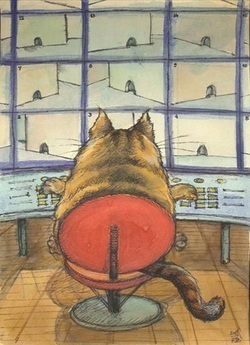 The Amazon Wars are back! (You knew they weren't over.)
The Amazon Wars are back! (You knew they weren't over.)In this most recent skirmish, authors, agents, and booksellers have banded together to call for a Dept of Justice investigation into Amazon's monopolistic tactics.
In a recent ruling against Apple, even the judges expressed some doubts as to whether they were looking at the right target.
"Would it not matter that all those people got together to defeat a monopolist? It’s like the mice that got together to put a bell on a cat,” U.S. Circuit Judge Dennis Jacobs told the Justice Department’s lawyer, Malcolm Stewart.
Apple is hardly a mouse. It has its own antitrust suit to deal with over iTunes. Nevertheless, Jacobs does have a point.
When Apple began its efforts to undermine Amazon, Amazon controlled 93% of the ebook market. That figure has since fallen, but because Amazon is secretive about its market share, nobody really knows how much it controls.
The truth is that the market rests in the hands of very few companies. Whether they collude or compete, the end result is always the same: Authors lose out.
_____________________
Authors, Booksellers & Agents Call for DoJ to Investigate Amazon
By Judith Rosen
Publishers Weekly, Jul 14, 2015
Authors United, a loosely knit group of authors who banded together last year to apply pressure to Amazon during its then-dispute with Hachette, has called on its members to sign a new letter destined for the antitrust division of the Department of Justice.
Last fall Douglas Preston, the thriller writer who formed Authors United, aired his group's concerns about Amazon's domination of the retail book market in a meeting with the DoJ. Now, although the Hachette-Amazon disputed has ended, he said enough has not been done about Amazon's position in the marketplace.
In an e-mail sent Monday afternoon, calling on authors to sign the new letter, Preston wrote: “The settlement of the dispute did not change the fundamental problem: That one corporation now dominates the book market in the United States. We believe Amazon has used its power in ways that harm the interests of authors, readers, booksellers, and the publishing industry as a whole.”
Preston composed the letter to the DoJ, which will be sent days after Amazon celebrates its 20th anniversary, with the Authors Guild. The letter has also been endorsed by the American Booksellers Association and the Association of Authors’ Representatives.
“Today a single company, Amazon, has gained unprecedented power over America’s market for books,” it begins. “We are not experts in antitrust law, and this letter is not a legal brief. But we are authors with a deep, collective experience in this field, and we agree with the authorities in economics and law who have asserted that Amazon’s dominant position makes it a monopoly as a seller of books and a monopsony as a buyer of books.”
Read more HERE.
Published on July 28, 2015 05:04
July 23, 2015
14 Writing Contests in August - No Entry Fees
 There are several interesting writing contests this month. Of special note is Library Journal's self-published book award. Library Journal is a prestigious publication, read by librarians all over the country, so if you have self-published in Romance, Mystery, Science Fiction, or Fantasy, do consider entering.
There are several interesting writing contests this month. Of special note is Library Journal's self-published book award. Library Journal is a prestigious publication, read by librarians all over the country, so if you have self-published in Romance, Mystery, Science Fiction, or Fantasy, do consider entering.In another interesting competition, Brigantine Media is offering an advance of $2000 and a publishing contract for a manuscript of any genre. (Take a look at their contract HERE.) (And if you win, don't sign it until it has been reviewed by a lawyer. Their out-of-print clause needs modification.)
Good luck!
___________________
Boardman Tasker Prize. Restrictions: Books published between 1st August 2014 and 31st October 2015 in the UK. Genre: Books with mountain, not necessarily mountaineering, theme whether fiction, non-fiction, drama or poetry, written in the English language. Prize: £3,000.00. Deadline: August 1, 2015.
Milwaukee Irish Fest. Genre: Poetry. Entries should have a culture/literary relation to either Ireland, Irish-America, or to Irish poetry. Prize: $100. Deadline: August 1, 2015.
The Governor General’s Literary Awards. Restrictions: Books must have been written, translated or illustrated by Canadian citizens or permanent residents of Canada. Genre: Best English-language and the best French-language book will be chosen in each of the seven categories of Fiction, Literary Non-fiction, Poetry, Drama, Children’s Literature (text), Children’s Literature (illustrated books) and Translation (from French to English). Prize: $1,000 - $25,000. Deadline: August 1, 2015.
Costa Short Story Award. Restrictions: Residents of UK and Ireland. Genre: Short story. Prize: £3,500.00. Deadline: August 5, 2015.
RBC Taylor Prize. Restrictions: Citizens or residents of Canada. Must be published author. Genre: Literary nonfiction. Prize: $25,000 (CAN). Deadline: August 7, 2015 for books published between May 30 and July 31, 2015.
Publish or Perish Contest is sponsored by Brigantine Media. Genre: Any. Results Announced: September 15, 2015. Length limit: 150,000 words for the manuscript; 5,000 words for the marketing plan. Prize: $2,000 advance against royalties and a contract to publish the book. Deadline: August 15, 2015. R ead more details HERE .
The Ernest J. Gaines Award for Literary Excellence. Genre: A work of fiction (novel or collection of short stories) that will be published in 2015. Galleys for a 2015 publication are also accepted. Restrictions: Author must be an African-American U.S. citizen. No self-published works. Prize: $10,000. Deadline: August 15, 2015.
Scotiabank Giller Prize. Restrictions: Open to books published in Canada in English between October 1, 2014 and September 30, 2015. Must be nominated by publisher. Genre: Fiction. Full-length novel or collection of short stories published in English, either originally, or in translation. Prize: $100.000 to the winner and $10,000 to each of the finalists. Deadline: August 15, 2015.
Library Journal 's Self-Published Ebook Awards. Genres: Romance, Mystery, Science Fiction, Fantasy. Open to all English-language self-published ebooks. No restrictions on date of publication. Prize: $1,000.00 USD plus review in Library Journal. Deadline: August 31, 2015.
I is Another - short story competition. Genre: A story in the first person about someone who is not you but which is about a subject close to year heart. Therefore the storyline will really matter to you but the story should not be autobiographical. It should have a strong theme such as betrayal, sorrow, lust, jealousy or revenge and be under 2000 words. Prize: £200. The winning short story and runners-up will be published in their online magazine. Deadline: August 31, 2015.
Epigram Books Fiction Prize. Restrictions: Authors must be Singaporean, Singaporean permanent resident or Singapore-born. Genre: A full-length, original and unpublished novel written in the English language. Prize: $20,000. Deadline: August 31, 2015.
Eugene Paul Nassar Poetry Prize. Restrictions: Author must be resident of Upstate New York. Genre: Book of poems in English, at least 48 pages long, published between July 1, 2014 and June 30, 2015. Prize: $2,000. Deadline: August 31, 2015.
Switchback. Genres: Short Fiction & Creative Nonfiction. Prize: $200 and publication. Deadline: August 31, 2015.
Young Lions Fiction Award. Restrictions: Open to US citizens 35 years of age or younger. Genre: Novel or a collection of short stories published between January 2015 and December 2015. Prize: $10,000.00. Deadline: August 31, 2015.
Published on July 23, 2015 05:06
July 21, 2015
11 Writers' Conferences in August

Summer is in full swing, but soon it will come to an end. This is a good time to slow down, take stock, and prepare for the mad dash of Fall. Fortunately, there are a few good conferences that will allow you to do just that.
There are several good conferences this coming month focusing on the craft of writing, which is timely. August is the "dead month" for agents and editors - a time when they catch up on their old queries, and take a break from receiving new ones. (See: When Not to Contact and Agent: What Writers Should Do During the Dead Month.)
Whether you decide to retreat with other writers, or simply head out to the garden shed, this is a good month for writers to stop a spell, and ruminate.
_______________________
Writing Short Nonfiction: Picture Books and Articles. Aug 2 - 6, 2015, Honesdale, Pennsylvania. Sponsored by Highlights Foundation. Workshop faculty: Debra Hess, Deborah Heiligman, Barbara Kerley. Two one-on-one critique sessions with a member of the faculty included.
Green Mountain Writers Conference. August 3 - 7, Chittenden, Vermont. Workshops in poetry, fiction, and creative nonfiction, as well as one-on-one consultations, lectures, publishing discussions, and readings. The faculty includes poets Christian McEwen, Peter Money, and Verandah Porche; fiction writers Elizabeth Rosner and Phoebe Stone; and creative nonfiction writers Chuck Clarino and Yvonne Daley.
Mendocino Coast Writers Conference. August 6 - 8, Fort Bragg, California. Workshops in poetry, fiction, and creative nonfiction, as well as panels and workshops with editors and agents, craft lectures, readings, and discussion forums on publishing and marketing. The faculty includes poets Albert Flynn DeSilver and Indigo Moor; fiction writers David Corbett, Catherine Ryan Hyde, and Lisa Locascio; and creative nonfiction writer Sheila Bender.
Cape Cod Writers Center Conference. August 6 - 9, Hyannis, Massachusetts. Workshops and craft classes in poetry, fiction, and creative nonfiction, as well as manuscript consultations and mentoring sessions with editors and agents. The faculty includes poets Marge Piercy and Kevin Pilkington; fiction writers Claire Cook, David Anthony Durham, Indira Ganesan, Kate Klise, and Charles Salzberg; nonfiction writer Jerry Armenic; editor Chantelle Aimée Osman (A Twist of Karma Entertainment, LLC); and agents Michael Carr (Veritas), April Eberhardt (April Eberhardt Literary), Sorche Elizabeth Fairbank (Fairbank Literary Representation), Amaryah Orenstein (GO Literary), and Rick Richter (Zachary Shuster Harmsworth). Application Deadline: July 24, 2015.
Florida Authors and Publishers Association Annual Conference. Aug 7 - 8, 2015, Orlando, Florida. Professional development sessions designed to provide authors and publishers with up-to-date publishing resources. Faculty: Steven Spatz, President of BookBaby; Dete Meserve, President Wind Dancer Films; Tara Alemany, Aleweb Social marketing; Ken Countess, Constant Contact; Carol Topp, CPA; David Essel, inspirational speaker; Saundra Kelley, storyteller.
HippoCamp Creative Nonfiction Conference. August 7 - 9, Lancaster, Pennsylvania. craft and query workshops, panel discussions, lectures, open mics, and readings for creative nonfiction writers. Participating nonfiction writers include Amy Jo Burns, Tara Caimi, Viannah E. Duncan, Sarah Einstein, Wendy Fontaine, Robert Long Foreman, Lee Gutkind, Vicki Mayk, Jennifer McGuiggan, Kate McIntyre, Lori M. Myers, Matt Skillen, James Stafford, D. Watkins, Allison Williams, and Stefanie Wortman; participating publishing professionals include Tyler Barton (Triangle), Carol Cool Erin Dorney (Triangle and Third Point Press), Nicole Frail (Skyhorse Publishing), Monique Antonette Lewis (At The Inkwell), Gale Martin (Harcum College), Donna Talarico (Hippocampus Magazine), and Jim Warner (Quiddity).
Willamette Writers Conference. August 7 - 9, Portland, Oregon. 100 workshops conducted by more than 50 seasoned pros in the areas of fiction, non-fiction, screenwriting, manuscript editing, publishing, self-publishing and promotion, pitching, entering writing contests, research and business. Whether you write self-help books, historic fiction, blockbuster Hollywood screenplays, mysteries, romance, magazine articles, sci-fi, plays, children's books, humor, self publish or simply need help marketing yourself as a professional, you'll find helpful guidance and keen insights. Other conference features include advance manuscript critiques, filmlab, silent auction, awards banquet, and group and one-on-one pitch sessions with New York literary agents and editors and Hollywood film agents, managers, and producers.
Mid-Atlantic Fiction Writers Institute. August 7 - 9, Hagerstown, Maryland. The annual MAFWI summer conference offers workshops and breakout sessions by bestselling authors, college faculty, and experienced public relations professionals. From story fundamentals like plot and point of view to seasoned advice on how to market your work, there is something for writers of every genre.
Deadly Ink Mystery Conference. August 7 - 9, New Brunswick, New Jersey. 12 workshops, 2-tracks for writers and fans. Guest of Honor: Brad Parks, Toastmaster: E.F. Watkins, Fan Guest of Honor: Ilene Schneider,Other authors: S.W. Hubbard, Other authors: Jeff Markowitz, Jane Cleland, Jack Getze, Roberta Rogow, S.A. Solomon, Annamaria Alfieri, Richard Belsky, and more.
Travel Writers & Photographers Conference, Aug. 13–16, Corte Madera, Calif. Writing and photography workshops in the morning, a full afternoon of panels and discussions, and evening faculty presentations. There are optional, working field trips to explore the resources of the Bay Area. The faculty includes publishers, magazine editors, photographers, travel essayists, food writers, restauranteurs, guidebook writers, and more.
Unicorn Writers' Conference, August 15, Purchase, NY. Make connections and get feedback with dozens of opportunities for one-on-one face time with industry insiders, including: One-on-one manuscript reading and feed-back sessions with agents and editors, Networking breakfast, lunch and dinner, After-conference networking party. Perfect Your Craft with a choice of seven workshops to attend from over thirty different sessions offered in: Fiction, Nonfiction, Memoir, Mystery, Poetry, Screenwriting, Children’s Literature, Romance, Horror/Sci-Fi. Get the insider’s edge with a vast selection of rare, how-to tutorials from every department within a publishing company, including: Marketing/Publicity, Art/Production, Contracts, Special sales, Media training, Pitching Your Work, How to appeal to agents and editors, Various writing workshops, Literary agents and editors - discussion panels.
Published on July 21, 2015 05:20
July 16, 2015
3 New Agents Actively Seeking Clients: Fantasy, Romance, NA, YA, Nonfiction, and More
Here are three new literary agents looking for clients. Amanda O’Connor (Trident Media) is seeking general-interest and upmarket nonfiction, spirituality and wellness, and literary fiction. Mallory C. Brown (TriadaUS) is interested in young adult, new adult, fantasy, romance, women’s fiction, and nonfiction. Pete Knapp of New Leaf Literary & Media, Inc. is looking for middle grade and young adult fiction across all genres, and he's also seeking smart, high-concept adult fiction.  Mallory C. Brown of TriadaUS
Mallory C. Brown of TriadaUS
About Mallory: Literary agent Mallory C. Brown is with TriadaUS. Some of Mallory’s favorite books at the moment are: A Series of Unfortunate Events, Gone Girl, Outlander, and To All the Boys I’ve Loved Before.
What she is seeking: Young adult, new adult, women’s fiction, and nonfiction. She is especially drawn to pieces with strong character-driven plots and witty humor. She loves contemporary fiction, low fantasy, and romance. Mallory also appreciates a well-placed comma and hopes you do, too.
How to submit: E-query mallory [at] triadaus.com. When querying, please include the first ten ms pages in the body of the e-mail after your query.
_____________________
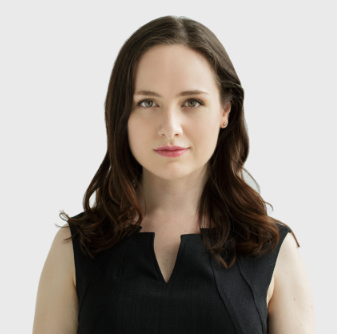 Amanda O’Connor of Trident Media
Amanda O’Connor of Trident Media
About Amanda: Amanda O’Connor joined Trident Media Group from Penguin Random House where she worked as an editor. Previously, she had been a bookseller, ghostwriter, assistant, and volunteer, happily taking on many roles within the publishing industry. Her breadth of experience has proven invaluable to her work as an agent, supporting authors through every step from proposal to publication and beyond. She holds a B.F.A. Writing, Literature, & Publishing with a concentration in poetry from Emerson College.
What she is seeking: Amanda is continuously building her client list in general-interest and upmarket nonfiction, spirituality and wellness, and literary fiction. She looks for the “wisdom factor” across genres and disciplines, especially authors who have an expertise they are eager to share with the world. Her favored subjects include (but are not limited to) history, religion, popular science, sociology, culinary arts, and creativity. In spirituality, Amanda’s approach is truly ecumenical, seeking leaders of all faith communities from Catholic nuns to Sikh entrepreneurs, from practical self-help to inspirational memoir. Literary fiction is a pursuit of passion. She gravitates towards works that address timeless concerns of the soul through the lens of modern life. Above all else, Amanda loves a well-crafted sentence.
How to submit: Please submit through Trident’s online form, directing its attention to Amanda O’Connor. Unsolicited queries should include a paragraph about yourself, a concise and thoughtful summary of the proposal, and your contact information. Please do not send a manuscript or proposal until you have been requested to do so.
____________________
 Peter Knapp of New Leaf Literary & Media, Inc.
Peter Knapp of New Leaf Literary & Media, Inc.
About Peter: Peter worked at The Park Literary Group, where he represented authors of middle grade and young adult fiction, and prior to that he was a story editor at Floren Shieh Productions, consulting on book-to-film adaptations for Los Angeles-based movie and TV entities. He graduated from NYU summa cum laude and lives in Brooklyn.
What he is seeking: Middle grade and young adult fiction across all genres, and he's also seeking out smart, high-concept adult fiction. In YA, he wants character-driven contemporary, magical realism, epic fantasy (but it must feel fresh), and realistic stories with some type of twist (speculative, fantastical or otherwise). In middle grade, he likes literary award-contenders, epic adventures (fantastical or not) and everything in-between. He has a special place in his heart for middle grade that is spooky, funny, irreverent—or all three.
How to submit: Send query to query [at] newleafliterary [dot] com. The word "Query" must be in the subject line, plus the agent's name. You may include up to 5 double-spaced sample pages within the body of the email. NO ATTACHMENTS, unless specifically requested.
 Mallory C. Brown of TriadaUS
Mallory C. Brown of TriadaUSAbout Mallory: Literary agent Mallory C. Brown is with TriadaUS. Some of Mallory’s favorite books at the moment are: A Series of Unfortunate Events, Gone Girl, Outlander, and To All the Boys I’ve Loved Before.
What she is seeking: Young adult, new adult, women’s fiction, and nonfiction. She is especially drawn to pieces with strong character-driven plots and witty humor. She loves contemporary fiction, low fantasy, and romance. Mallory also appreciates a well-placed comma and hopes you do, too.
How to submit: E-query mallory [at] triadaus.com. When querying, please include the first ten ms pages in the body of the e-mail after your query.
_____________________
 Amanda O’Connor of Trident Media
Amanda O’Connor of Trident MediaAbout Amanda: Amanda O’Connor joined Trident Media Group from Penguin Random House where she worked as an editor. Previously, she had been a bookseller, ghostwriter, assistant, and volunteer, happily taking on many roles within the publishing industry. Her breadth of experience has proven invaluable to her work as an agent, supporting authors through every step from proposal to publication and beyond. She holds a B.F.A. Writing, Literature, & Publishing with a concentration in poetry from Emerson College.
What she is seeking: Amanda is continuously building her client list in general-interest and upmarket nonfiction, spirituality and wellness, and literary fiction. She looks for the “wisdom factor” across genres and disciplines, especially authors who have an expertise they are eager to share with the world. Her favored subjects include (but are not limited to) history, religion, popular science, sociology, culinary arts, and creativity. In spirituality, Amanda’s approach is truly ecumenical, seeking leaders of all faith communities from Catholic nuns to Sikh entrepreneurs, from practical self-help to inspirational memoir. Literary fiction is a pursuit of passion. She gravitates towards works that address timeless concerns of the soul through the lens of modern life. Above all else, Amanda loves a well-crafted sentence.
How to submit: Please submit through Trident’s online form, directing its attention to Amanda O’Connor. Unsolicited queries should include a paragraph about yourself, a concise and thoughtful summary of the proposal, and your contact information. Please do not send a manuscript or proposal until you have been requested to do so.
____________________
 Peter Knapp of New Leaf Literary & Media, Inc.
Peter Knapp of New Leaf Literary & Media, Inc.About Peter: Peter worked at The Park Literary Group, where he represented authors of middle grade and young adult fiction, and prior to that he was a story editor at Floren Shieh Productions, consulting on book-to-film adaptations for Los Angeles-based movie and TV entities. He graduated from NYU summa cum laude and lives in Brooklyn.
What he is seeking: Middle grade and young adult fiction across all genres, and he's also seeking out smart, high-concept adult fiction. In YA, he wants character-driven contemporary, magical realism, epic fantasy (but it must feel fresh), and realistic stories with some type of twist (speculative, fantastical or otherwise). In middle grade, he likes literary award-contenders, epic adventures (fantastical or not) and everything in-between. He has a special place in his heart for middle grade that is spooky, funny, irreverent—or all three.
How to submit: Send query to query [at] newleafliterary [dot] com. The word "Query" must be in the subject line, plus the agent's name. You may include up to 5 double-spaced sample pages within the body of the email. NO ATTACHMENTS, unless specifically requested.
Published on July 16, 2015 05:40
July 9, 2015
The Skinny on Virtual Book Tours
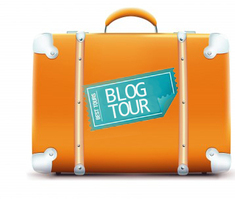 What is a virtual book tour?
What is a virtual book tour?A virtual book tour (aka blog tour) consists of lining up a series of bloggers to review your upcoming book (and/or conduct author interviews) during a time frame that corresponds to the release of your title.
It is, as the name suggests, the internet version of an old-fashioned, in-the-flesh book tour.
Purpose of a virtual book tour
The purpose of a blog tour is to generate interest in your book. (This is called buzz.) That interest should pay off in sales, but it won't if you don't capitalize on it with other promotional tools such as giveaways, well-placed author interviews, and, of course, promotion of your blog tour on twitter, Facebook, and on your own blog and website. Building an audience takes time, energy and planning. A blog tour is just a part of your promotional plan.
How effective is a virtual book tour?
That depends entirely on where reviews and/or interviews are posted. Highly trafficked sites will be more effective than sites with just a few followers. If you plan it right, a book tour that includes influential sites can create considerable buzz. The difficulty many Indie authors face is that they don't have the time it takes to research well-trafficked sites. And, of course, tours require some planning. Review requests need to be sent out several months in advance of the release date.
Be aware that you will have to send out hundreds of email requests, as well as hundreds of ebook ARCs to get a decent number of reviews. (Unless you have written a steamy romance, the return rate is generally less than 10%.) But even 20 well-placed reviews and interviews can be highly effective. The reviews may not necessarily generate a lot of sales, but your name and the title of your book will have appeared on the net in 20 locations - hopefully with back links to your website - which will increase your exposure on search engines. (Don't forget to check if reviewers cross-post on Amazon and other venues, which will increase the reach of their review exponentially.)
To find bloggers in your genre see:
Top 12 Sites for Finding Reviewers
Top 5 Sites for Science Fiction Writers
Top 5 Sites For Mystery/Thriller Writers
Top 6 Sites for Romance Writers
Top 5 Online Resources for Children's and YA Book Writers
You can also do a google search on "[Your genre] book reviews." This will yield you thousands of hits.
Measuring success
Many authors measure the success of a blog tour by how many books they sell. (Be sure to look at your KDP, Nook or Smashwords dashboard before you embark on a tour so you will have a point of comparison.) But there are other ways to measure success.
Getting your name out there is important, not just for your current book, but for future books. One way to determine if your blog tour is increasing your visibility is to sign up for Google Alerts, and create alerts for your name and for your book title. You can compare how often you are mentioned before and after the tour. Keep tracking to see if the buzz continues, and when it starts falling off. That will give you a time frame for how successful your tour has been, and will allow you gauge the success of your other promotions. What you want to see is steady conversation about you and your book for several weeks prior to the release, and a couple of weeks after. (Don't forget to arrange for pre-orders. Amazon has that feature as does Smashwords.)
Increased traffic to your blog and/or website is also a measurement of success. How many people visit your website during the tour, and are they following? (If you don't already have an email sign-up feature for your blog or website, now would be the time,) Followers are your fans! Don't be shy about sending them news.
Book tour services
In light of the planing involved, some authors turn to book tour services rather than spend time organizing their own tours. There are a couple of advantages to using a book tour service: 1) You don't have to do all the work, and 2) Tour services have lists of hundreds of reviewers and social media outlets.
There are also disadvantages: 1) There is no guarantee that the reviewers the tour services have on their lists will actually review your book, 2) The review sites may not be well-trafficked, and 3) You have to pay, sometimes quite a bit, for the service.
What to look for in a book tour service
First, check out their stats. If their site ranks in the millions on Alexa, it means they get very little traffic. (The lower the number the better. Numbers in the hundreds of thousands are good.) Also check their daily visitors and page views on 7SecretSearch. Look to see how many followers the main tour site has. If there are fewer than one hundred, don't even think of using the service.
Next, check to see who is on their list of bloggers. How many bloggers are listed? (Make sure it's a lot.) Go to those sites and check how many followers each one has. This may be time consuming, but if the blog sites have few followers, it will do you little good to have them post an interview or review. While you are checking for followers, do a quick check for comments on posts, an "about" page, and other indications that the blogs are not "dummy blogs." (Some virtual book tour services have been known to set up fake blogs.)
Lastly, look for services that provide things you either can't or don't want to do yourself. These may include:
A bannerPosting on Net GalleyDistribution of a promotional packageRemember, tour services need to be for your genre. There is no point hiring a tour service that caters to romance bloggers if you write mysteries. So, examine the host blogs carefully.
Best services
Experiences with tour services vary tremendously, but there are a few (very few) that have been consistently recommended by authors. I've listed those which have decent site traffic, good social networking, and a large enough number of participating bloggers to make it worth your while.
Keep in mind that the success of a tour depends largely on how much an author is willing to contribute (e.g. contacting the blog hosts personally, making sure your website is current and mentions the tour, composing interviews and promotional material to send to hosts). Prices vary widely, and they do not always correspond with value.
For more information about paid blog tours see:
A Comparison of Book Blog Tour Services (Read the comment section)
Planning a Blog Tour? Think Twice (A critical review of blog tours)
7 Blog Tour sites
Reaching Readers: Lessons Learned From Blog Tours
__________________________
Xpresso Book Tours
US Alexa rank: 300,347. Global rank: 587,555
Daily Traffic: Unique Visitors: 3,674. Pageviews: 14, 696
Genre: Young Adult and New Adult in all genres
What they offer:
Cover Reveal $40
No limit on participants (average is 40 - 60)One dayMaximum Social Media Exposure through participating blogsShould be planned 3 to 4 weeks in advanceOnly for covers that have not been released anywhere online
Book Blitz $90
One day or window to postNo limit on participants (average is 70-90)Maximum Social Media Exposure through participating blogsShould be planned 3 to 5 weeks in advanceMust include a giveaway (one per blog or one shared Rafflecopter prize–note that one per blog will get you the most participants = more exposure.)
Review Query $70
Connect your book with thousands of bloggers, readers, and reviewers from both our host list and 30k/month page views;Save hours from querying bloggers individually;No wait list for this service! Can be posted within 2 business days.
Packages
All of the following packages include:
Reviews/Excerpts/Guest PostsCustom Tour Banner by Xpresso DesignMedia kitAdvertisement on Xpresso Reads (30,000+ views/month)Social media promo: Tour kick off post on Xpresso Reads’ Facebook Page(4,000+ Likes) Daily tour promotion on Twitter @XpressoReads (10,000+ followers)A personalized Tour Page at Xpresso Book Tours (example)Reviews/Excerpts/Guest Posts
Reviews to the max $170
6 daysMaximum sign ups (up to 40 blogs)May include giveaways *Encouraged*
Rock the Block $120
1 week~15 tour stops
Rock the Town $170
1 to 2 weeks (your choice)~20 tour stops
Rock the World $225
1 to 3 weeks (your choice)~30 tour stops
Rock the Stars $280
1 to 4 weeks (your choice)~40 tour stops______________________________
YA Bound
US Alexa rank: 272,973. Global rank: 1,213,266
Genre: Young Adult
What they offer:
15 stops - $50
20 stops - $70
25 stops - $90
30 stops - $120
35 stops - $140
40 stops - $180
50 stops - $200
Book blitz (1 day or 1 week) - $30
Cover reveals are free.
___________________________________
Pump Up Your Book Virtual Tours
Global Alexa rank: 672,407. Australia rank: 16,949
Genres: Fiction and nonfiction
What they provide (prices range from $199 to $799):
Bronze Tour Package – 10 stops (over the course of one month)Silver Tour Package – 18-20 stops (over the course of one month)Gold Tour Package – 30+ stops (over the course of two months)Platinum Package – 45+ stops (over the course of three months)
All packages include:
Media PacketBannerOfficial tour pageSocial network promotionInclusion in their PUYB Virtual Book Club on Goodreads
Published on July 09, 2015 12:35



